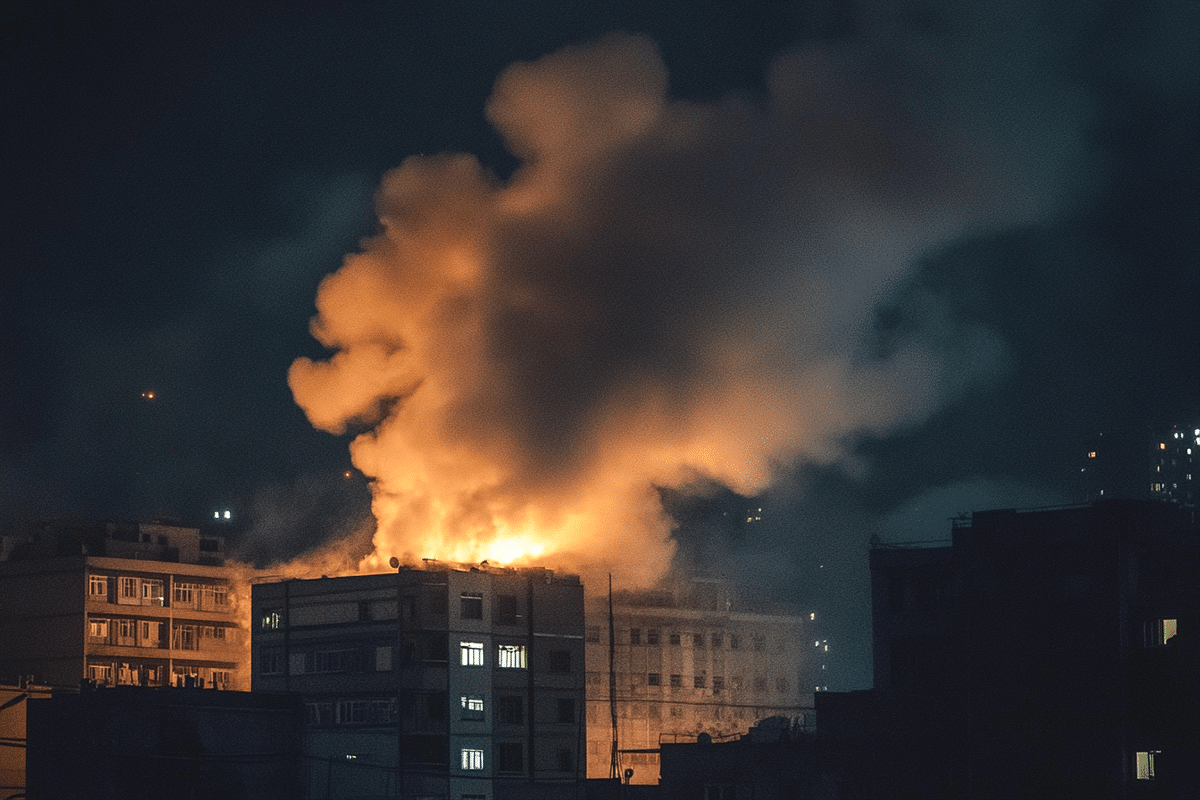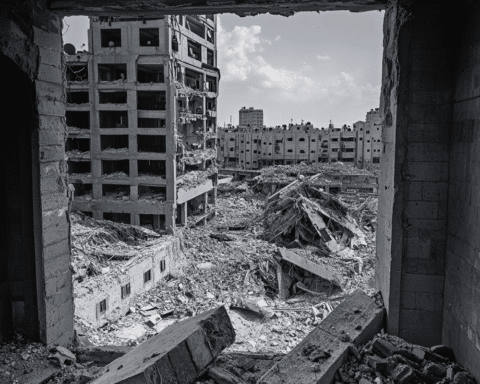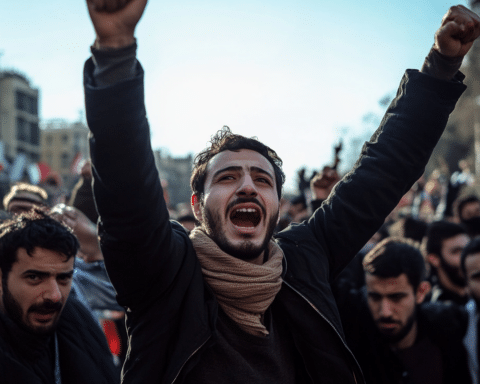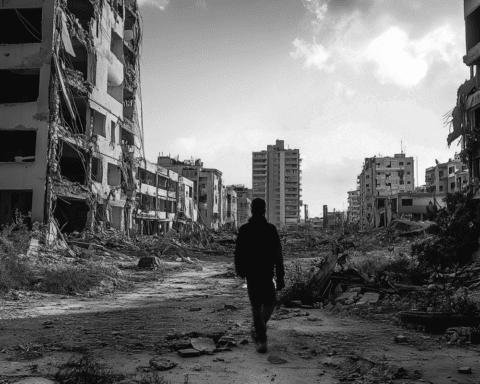The ongoing conflict between Israel and Hezbollah escalated further on Tuesday as the Israeli military destroyed a building in a Beirut suburb, claiming it housed Hezbollah facilities. The airstrike took place shortly after a press conference by the militant group, held just a few hundred meters away. This strike is part of an increasingly volatile situation that also includes heightened tensions in Gaza, where U.S. efforts to negotiate a cease-fire have yet to yield results.
Israel issued an evacuation warning 40 minutes before the airstrike, advising residents to leave two nearby buildings it claimed were being used by Hezbollah. The attack generated smoke and debris across the area, disrupting a press event where Hezbollah was discussing a recent drone attack on Israeli Prime Minister Benjamin Netanyahu’s residence. Fortunately, there were no immediate reports of casualties from the airstrike.
The recent escalation follows Hezbollah’s confirmation that it was behind Saturday’s drone attack targeting Netanyahu’s coastal home in Caesarea. While no one was harmed during the incident, as neither Netanyahu nor his wife were present, Hezbollah hinted at the possibility of future strikes on the prime minister’s residence.
Diplomatic Push Amid Rising Conflict
U.S. Secretary of State Antony Blinken visited Israel on Tuesday, marking his eleventh trip to the region since the outbreak of the war between Israel and Hamas. Blinken’s diplomatic efforts center on securing a cease-fire in Gaza, increasing humanitarian aid, and facilitating the release of hostages held by Hamas. Despite these efforts, both Israel and Hamas remain entrenched in their positions.
During his meeting with Netanyahu, Blinken emphasized the need to end the fighting between Israel and Hezbollah. The United States has urged Israel to dramatically increase humanitarian assistance to Gaza, a request that Blinken reinforced in discussions with Israeli officials. However, the conflict continues to escalate, complicating cease-fire negotiations led by the United States, Egypt, and Qatar.
Heightened Tensions and Regional Impact
Hours before Blinken’s arrival, Hezbollah launched a rocket barrage into central Israel, triggering air raid sirens, including near Ben Gurion International Airport. Fortunately, the attacks caused no significant damage or injuries. Meanwhile, Israeli airstrikes have intensified across Lebanon, targeting areas where Hezbollah maintains a presence. One such airstrike late Monday in Beirut killed 18 people and wounded at least 60.
The Lebanese Health Ministry reported that 63 people had been killed over the past 24 hours, raising the total death toll from the year-long conflict to 2,546. Hospitals in Beirut are on high alert, with some fearing they could become targets following unverified Israeli claims that Hezbollah is stashing cash and gold in their facilities. At Sahel General Hospital, staff evacuated patients as a precaution, but journalists found no evidence of militant activity.
Broader Conflict Envelops Gaza and Lebanon
Israel’s military operations have also intensified in Gaza, focusing on northern regions that have seen heavy casualties. Local health authorities report that more than 42,000 Palestinians have died since the conflict began, with half of the victims being women and children. In addition to widespread loss of life, the offensive has displaced 90% of Gaza’s population of 2.3 million.
The conflict traces back to October 7, 2023, when Hamas militants launched a deadly attack in southern Israel, killing 1,200 people and taking 250 hostages. Israel responded by launching a ground invasion in Lebanon to counter Hezbollah’s near-daily rocket attacks. The situation has drawn international concern as tensions spread throughout the region, with Israel warning of possible strikes against Iran following a recent ballistic missile attack.
Diplomatic Maneuvering in the Gulf
Both Israel and Iran are seeking regional support in anticipation of further escalation. Blinken is scheduled to visit several Arab nations, including Jordan, Saudi Arabia, and Qatar, to build diplomatic momentum. Meanwhile, Iranian officials have been engaging with Gulf states, reportedly securing assurances that their territory will not be used for Israeli strikes.
While the Gulf countries have not publicly confirmed such agreements, their strategic role in the conflict remains crucial. With military installations in Qatar and the UAE, there are growing fears that the war could widen and draw more nations into the fray. Iran has vowed to retaliate against any future Israeli strikes, further raising the stakes for regional stability.
As Israel presses forward with its operations in Gaza and Lebanon, and diplomatic efforts falter, the risk of an all-out regional conflict continues to loom. The situation remains volatile, with humanitarian concerns mounting amid the relentless cycle of violence.





